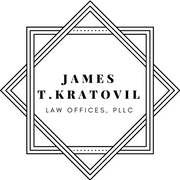Corporations Vs. LLCs: Insights From a Charles Town Business Attorney

If you're a business owner considering a corporation or LLC designation, you likely have a lot of questions. What does each designation entail? Which one is right for your business? Fortunately, business law attorney James Kratovil of the James T. Kratovil Law Offices, PLLC, in Charles Town, West Virginia, has answers. Below, he discusses some of the key differences between corporations and limited liability companies (LLCs).
Tax Laws
With an LLC designation, you can file taxes as a sole proprietor or partnership, S-corp, or C-corp, but with a corporation, you can only file as an S-corp or C-corp. While both corporation and LLC designations limit your liability as a business owner, an LLC allows you to maintain that limited liability while also filing federal taxes as a partnership or sole proprietor, whichever is more advantageous. In essence, you get the protection of the law that a corporation gets and the tax advantages of being a sole proprietor or partnership.
Ownership Flexibility
 Business law dictates that a legally-designated corporation can freely transfer ownership. This means that if new owners come on board someday or the ownership configuration changes in some way, the business will still be considered a corporation. Also, if you're considering making your business a publicly-traded entity, you are perfectly within the parameters of a corporation's coverage.
Business law dictates that a legally-designated corporation can freely transfer ownership. This means that if new owners come on board someday or the ownership configuration changes in some way, the business will still be considered a corporation. Also, if you're considering making your business a publicly-traded entity, you are perfectly within the parameters of a corporation's coverage.
Legal Differences
A corporation may be treated differently than an LLC. This is often because courts are more used to corporations; indeed, they've been around much longer than the LLC designation. What does this mean for you as a business owner? If a legal dispute arises, there are more precedents with corporations, so the solutions reached may be sounder and time-tested.
Contact the James T. Kratovil Law Offices, PLLC, to schedule a consultation with a business law attorney. You can also reach Attorney Kratovil's firm by calling (304) 728-7718 or via their Facebook page. Trust a local business law professional to help you decide which legal entity is right for your business: a corporation or an LLC.
About the Business
Have a question? Ask the experts!
Send your question

